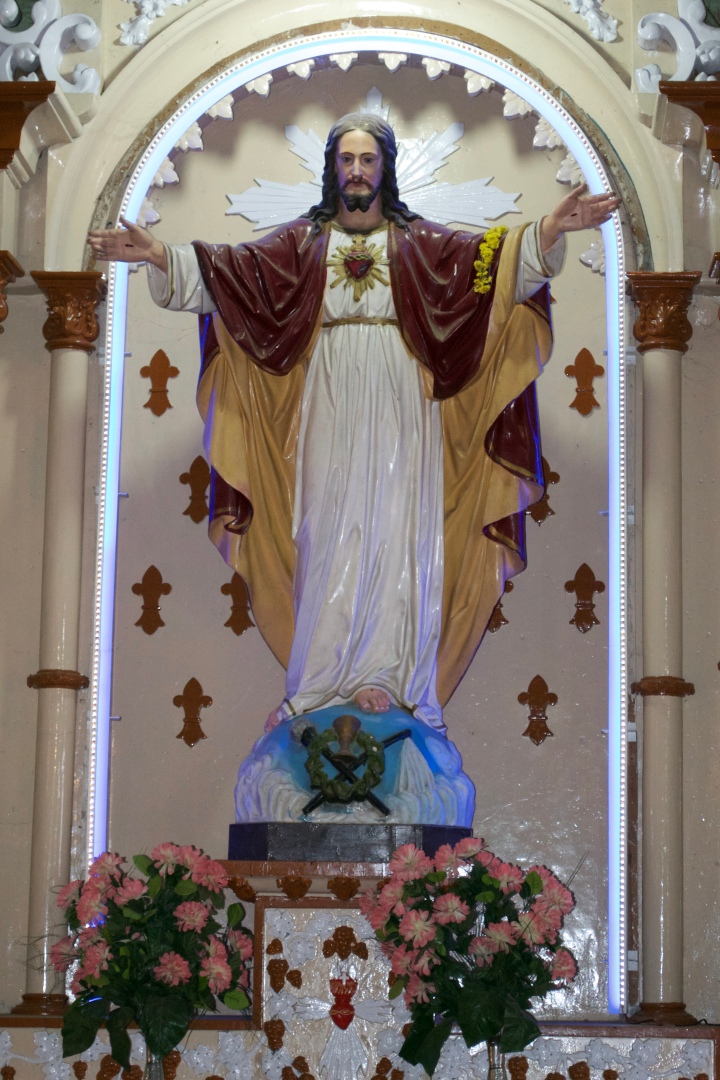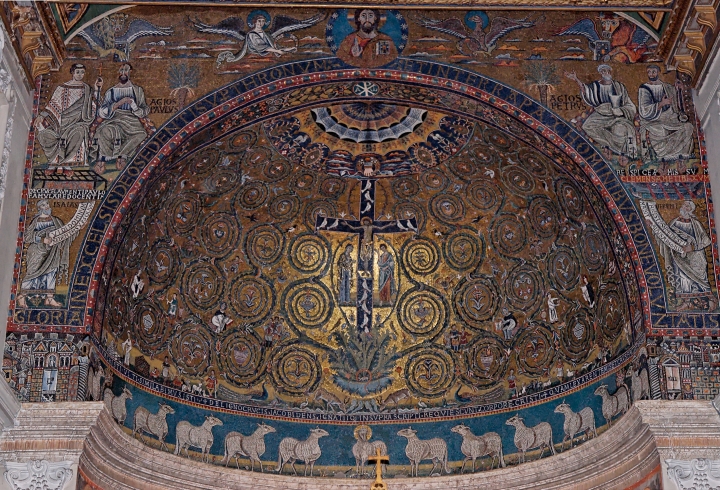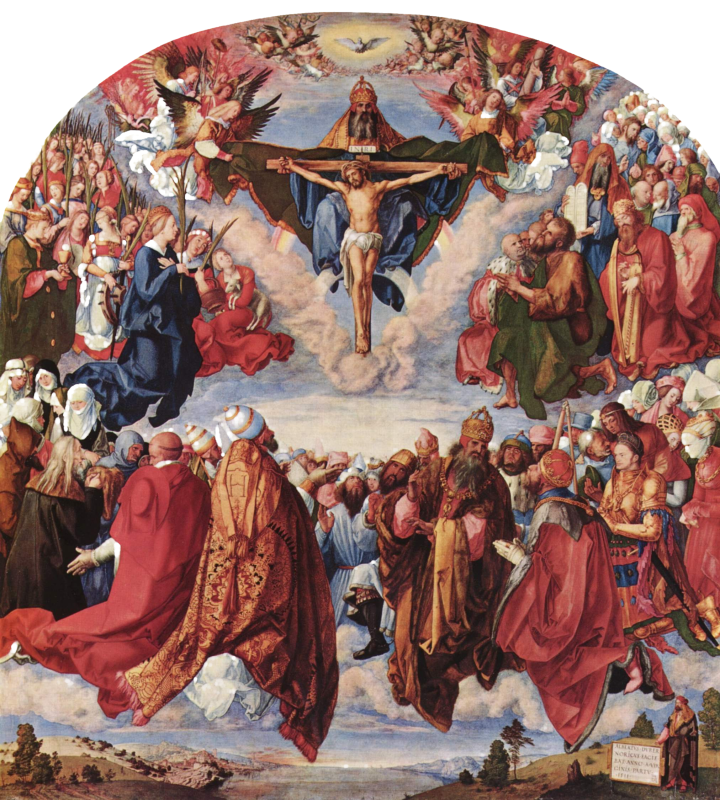The Sunday after the Ascension, the Seventh Sunday of Easter, is one of those strange in-between times, not quite Pentecost yet. So we wait with the Apostles for the outpouring of the Holy Spirit. We wait, and we pray fervently that God will pour His Spirit into our hearts, and our lives, to fill us with His Love.
In the Gospel this morning we are in the middle of Jesus’ High Priestly Prayer, which is the summit of His teaching just before His arrest and Passion. It is a moment of profound intimacy where Christ prays to God the Father. He prays not only for His disciples, but for those who will believe in Him through their word. That’s you, and me, and countless Christians down through the ages. Just before Christ’s arrest and Passion He prays for us. Such generosity and love should amaze us. Christ prays that we should be one, that there should be unity in the church. Sadly throughout its history this has not been the case, and it should shock us to the core. Unity is Christ’s will for His Church. It puts our petty human divisions into perspective. They’re bad and wrong; they’re not the will of God. It’s serious, and it matters, and we shouldn’t be making it worse, we should be growing together in love. We should do this because it is Christ’s will, we listen to Him, and do what He tells us. That isn’t the only reason, however. Christ prays that the Church may be one, ‘so that the world may believe that you have sent me.’ (17:21 ESV) In other words the truth of our witness and proclamation of the Gospel is contingent upon our unity. If we’re divided people won’t believe us. Which is the right or the proper bit? How can you tell? It isn’t always easy.
Christ gives us His glory, which is His Passion and Death. To follow Christ leads to a Cross, and onward to new life. But if we want to follow Christ then we cannot ignore pain and suffering. We’ve signed up for it. All of us have, in our baptism, when we received the water of life without price. We have to bear witness to Christ regardless of the cost. People may well think we are fools for believing what we do. The idea that Christians are simple-minded, or deluded, or weak, has been around for a long time. A religion for women, slaves, and children, said the pagan Celsus around AD 180 (cf. Orig. contra Celsum 344) It’s a silly idea, but plenty of people still believe it, even today. We can convince them otherwise by means of rational argument, but also by the example of our lives, as authentic faith is attractive, real, and convincing.
Christ speaks to us, and teaches us so that our joy may be complete in Him, filled with His love, and the Holy Spirit. The world’s reaction to this is a negative one: because what we are, what we stand for, and how we live as Christians is to be opposed to what the world around us stands for: selfishness, greed, which it makes into false gods, as though material wealth, or power, or status could save us – such things are transient and fleeting. The world offers us a short-cut, an easy road. Whereas if we are following Christ, then we are walking the way of his Passion, we are walking the Way of the Cross, dying daily to sin, and letting God’s grace be at work in and through us. It is not easy, it is difficult, most of us are unable to manage, we will fail, and we need the love and support of the Christian community to help us, even the first Christians, those who had been with Jesus, needed each other’s help and support, so they can continue what Jesus started.
We need to be together, to meet together to pray for our needs and those of the world, and to be nourished by the word of God, the Bible, and the Sacrament of Our Lord’s Body and Blood, not because they’re something nice to do on a Sunday morning: an add-on, an optional extra that we can opt into and out of as we feel like, but because as Christians they are crucial to who and what we are, if we are to remain in the love of God then we have to live this way. Only then can we offer the world an alternative to the ways of selfishness and sin. It will hate us for doing this, it will despise us and persecute us, it will call us hypocrites when we fail to live up to the example of Jesus; but as Christians who live in the love of God we forgive each other our trespasses, so that we can live out that same radical love and forgiveness which sees Jesus die upon the Cross for love of us and all the world, this is love which can transform the world. It is a message of such love, such forgiveness that the world cannot or does not want to understand it. We may not understand it, but we know that it can be experienced, and we are living testimony to its power. It turns our lives around and sets us free to live for God and to proclaim his saving truth in our words and actions, calling the world to repentance, to turn to Christ, and to be renewed in and through Him. In his power, with His Truth, filled with His Love we can transform the world, one soul at a time.
So as we wait with the Apostles for the gift of the Holy Spirit let us pray that Christ may come, and send His Holy Spirit, that God may be at work in us, building us up, and giving us strength to live his life and to proclaim his truth, to offer the world that which it most earnestly desires, a peace, a joy, a freedom which passes human understanding, and the gift of eternal life in Christ. Let us proclaim it so that all the world may come to know and love God the Father, God the Son, and God the Holy Spirit, to whom be ascribed as is most right and just all might, majesty, glory, dominion, and power, now and forever.


